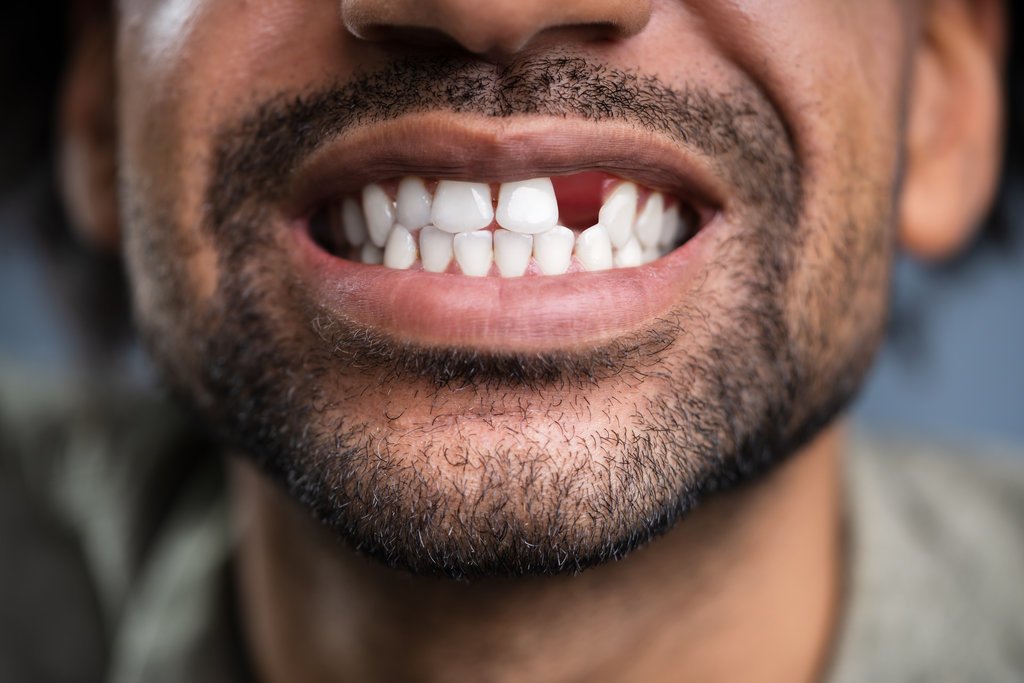
A perfectly planned Saturday afternoon can transform into a dental emergency in seconds. Whether you’re playing weekend sports, enjoying family activities, or dealing with an unexpected accident, a knocked-out tooth demands immediate action to preserve your chance of successful reimplantation.
When dental emergencies strike during off-hours, many people feel helpless and unsure of the next steps. Dr. Robert Chin and Dr. Jessica Pharar understand that serious dental trauma doesn’t wait for Monday morning appointments, which is why we provide comprehensive guidance for managing these urgent situations until professional care becomes available.
Immediate Steps for a Knocked-Out Tooth
Time becomes your most critical factor when dealing with an avulsed tooth. The American Dental Association recommends always keeping a knocked-out tooth moist. If possible, place the tooth back into the socket without touching the root. If this is not possible, you can place it between your cheek and gums.
Handle the tooth only by the crown, never touching the delicate root surface. Rinse the tooth gently with clean water if it’s dirty, but avoid scrubbing or using soap, alcohol, or other chemicals. If you can comfortably reinsert the tooth into its socket, do so immediately and hold it in place by gently biting down on clean gauze or cloth.
When reinsertion isn’t possible, preserve the tooth in the best available medium. Your saliva provides an excellent preservation environment, so placing the tooth between your cheek and gums works well for short periods. Alternatively, use cold milk or a tooth preservation kit if available. Never store the tooth in water, as this can damage the root cells essential for successful reimplantation.
Control bleeding by applying gentle pressure with clean gauze to the affected area. Ice can help reduce swelling when applied to the outside of the face in 15-minute intervals. Over-the-counter pain medications may provide temporary relief, but avoid aspirin as it can increase bleeding.
Finding Emergency Dental Care on Weekends
Weekend dental emergencies require prompt professional attention, yet many people struggle to locate available care during off-hours. Research emergency dental services in your area before you need them, keeping contact information readily accessible in your phone and home.
Many dental practices provide after-hours emergency numbers for urgent situations. Some practitioners maintain on-call services specifically for traumatic injuries like knocked-out teeth. Hospital emergency rooms can address severe pain, bleeding, or facial trauma, but they typically cannot reimplant teeth or provide definitive dental treatment.
Urgent care centers increasingly offer basic dental emergency services, though their capabilities vary significantly. When calling any emergency service, clearly explain that you have a knocked-out tooth and emphasize the time-sensitive nature of your situation.
Why Immediate Professional Care Matters
The window for successful tooth reimplantation narrows rapidly with each passing hour. Teeth have the highest chance of successful reattachment when professional treatment occurs within 30 minutes of the injury. After two hours, the likelihood of successful reimplantation decreases dramatically.
Delaying treatment can lead to serious complications beyond tooth loss. Infection risk increases when oral wounds remain untreated, potentially spreading to surrounding tissues and bone. The empty socket may not heal properly without professional care, complicating future restoration options like dental implants.
Even if reimplantation isn’t possible, immediate professional evaluation helps prevent additional complications. Dentists can clean the wound, assess surrounding teeth for damage, and prescribe antibiotics if infection risk exists. This early intervention often prevents more extensive and expensive treatments later. Severe complications may even require emergency root canal treatment if surrounding teeth sustain nerve damage.
Professional splinting helps stabilize reimplanted teeth during the healing process. Without proper stabilization, reimplanted teeth may fail to reintegrate with surrounding bone and soft tissues. Follow-up care ensures proper healing and monitors for potential complications like root resorption or nerve damage.
Preventing Future Dental Trauma
Weekend activities often involve higher risks for dental injuries, making prevention strategies especially important for active individuals and families. Sports participants should always wear properly fitted mouthguards, which significantly reduce the risk of tooth avulsion and other oral injuries.
Children face particular risk during playground activities and sports. Teaching kids about dental safety and ensuring they wear appropriate protective equipment helps prevent traumatic injuries. Adults should model safe behaviors and remain vigilant during high-risk activities. For families with young children, understanding what to do in a dental emergency helps parents respond quickly and effectively.
Home safety measures also play a crucial role in preventing dental trauma. Secure loose rugs, ensure adequate lighting in stairways, and maintain clutter-free walkways to reduce fall risks. These simple precautions help protect your smile during everyday activities. Regular preventive care also strengthens teeth against trauma, so maintaining consistent appointments for preventive dentistry services creates a foundation for long-term oral health.
Expert Emergency Dental Care with Drs. Chin & Pharar Dentistry
Dental emergencies create stress and anxiety, but having a clear action plan helps you respond effectively when time matters most. Dr. Chin and Dr. Jessica Pharar bring extensive training in emergency dental care, including advanced techniques for managing traumatic tooth injuries. Dr. Chin completed his General Practice Residency at the University of Rochester Medical Center, while Dr. Pharar pursued Advanced Education in General Dentistry at Texas A&M, Baylor College of Dentistry.Don’t let a knocked-out tooth compromise your smile or oral health. Our practice provides prompt emergency care with the advanced training and equipment necessary for optimal outcomes. Contact us at (702) 445-7075 or reach out through our contact form for immediate assistance with your dental emergency.